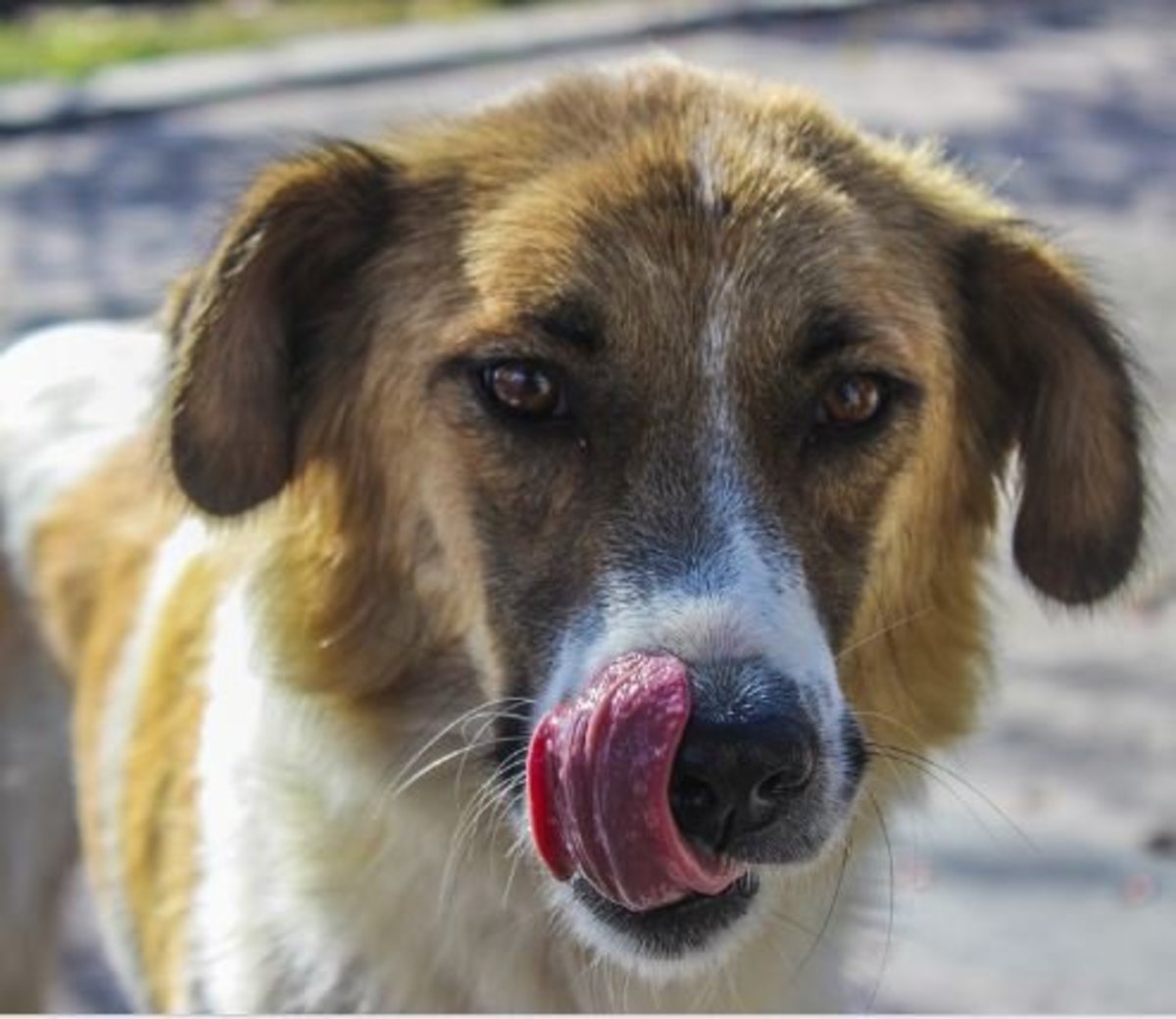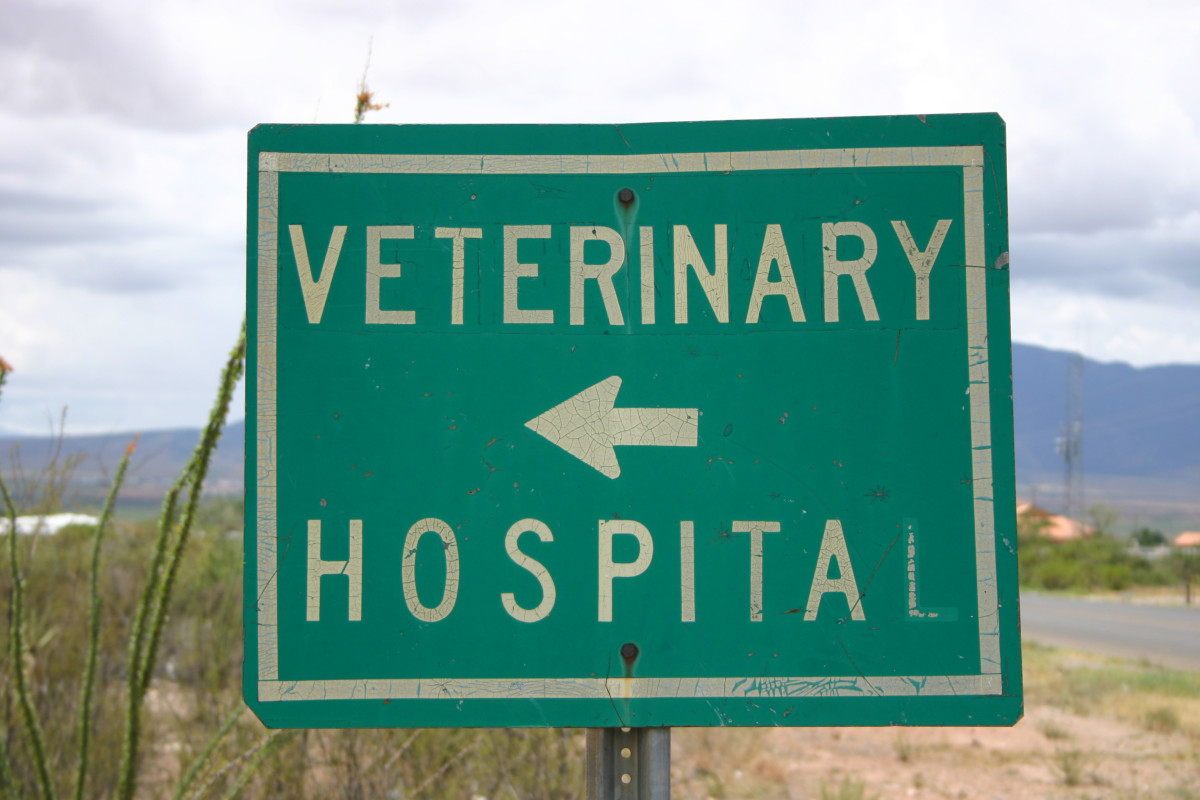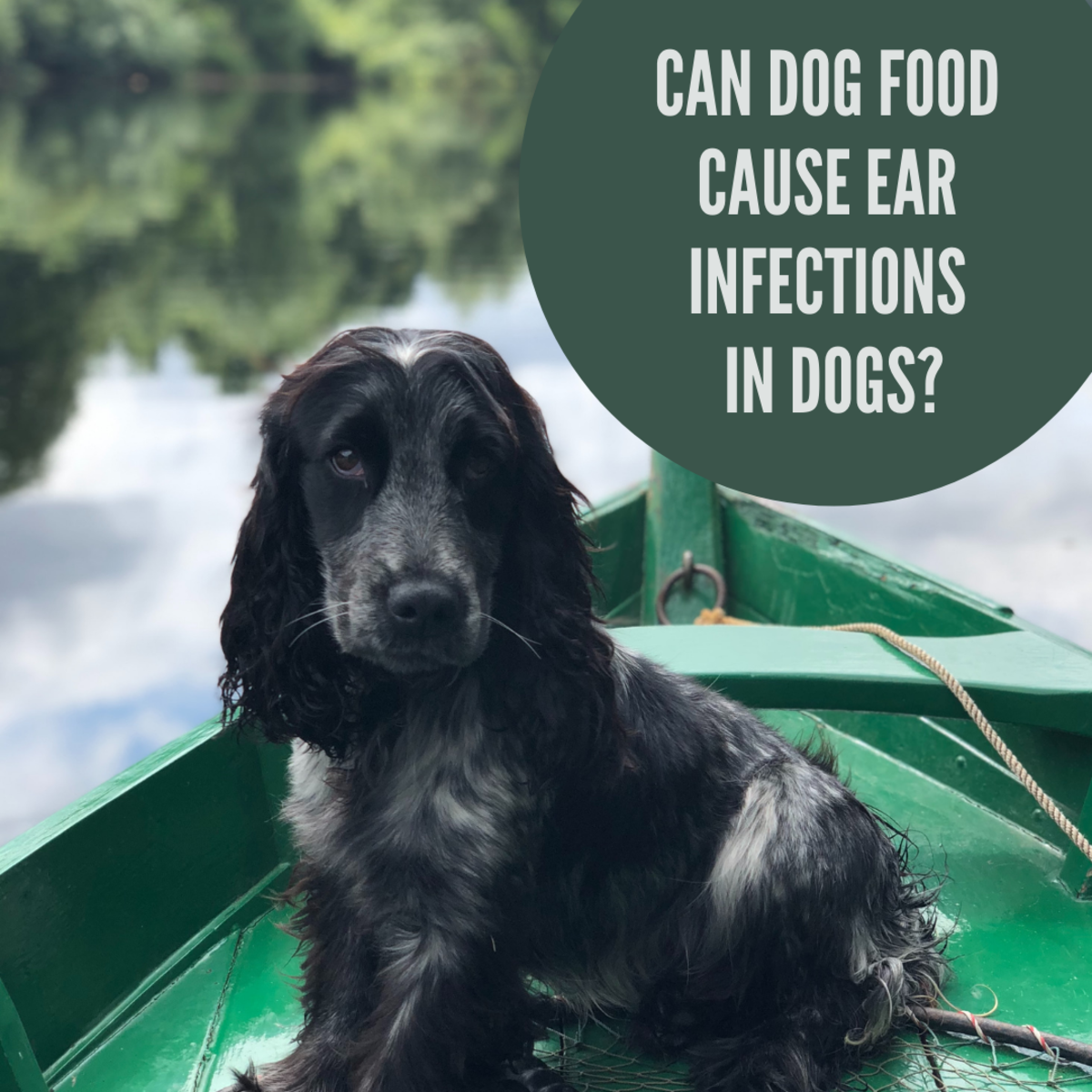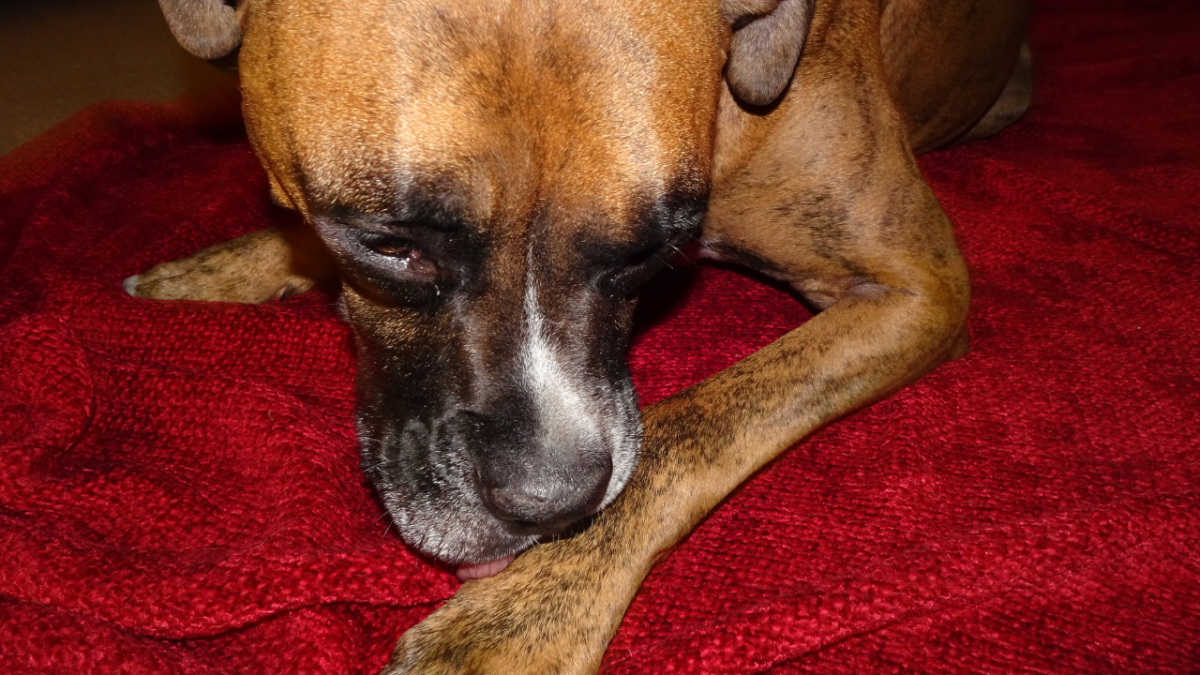Does Your Dog Need a Veterinary Specialist?
Does Your Dog Need a Veterinary Specialist?

So Who Exactly are Veterinary Specialists?
In the human medical field, it has become common practice for doctors to refer patients to specialists and the same is happening in the veterinary world: more and more veterinarians are referring their four-legged patients to veterinary specialists.
If you are wondering if it's time for your dog to see a veterinary specialist, most likely the time is right, especially if you are getting nowhere when it comes to treatment. But exactly who are these veterinary specialists, and why are they becoming so popular?
Your regular veterinarian undergoes years of training to diagnose and treat canine conditions and diseases; however, to become a veterinary specialist, a veterinarian must have completed additional training in a specific, chosen field of veterinary medicine not available as part of the average veterinary education.
Veterinary specialists typically undergo 4 to 8 years of intensive training including a 2-3 year residency in choice of specialty followed by a rigorous credentialing process that ultimately leads to board-certification.
Veterinarians who have completed these rigorous requirements and become board-certified, are known as "diplomats." A diplomate can be easily recognized from the extra letters found behind a veterinarian’s name after DVM (Doctor of Veterinary Medicine).
An example? Emily Moeller, DVM, DACVO. At the present time, there are 22 specialty organizations recognized by the American Veterinary Medical Association (AVMA) comprising 40 veterinary specialties. Currently, more than 11,000 veterinarians have been awarded the diplomate title by these veterinary specialty organizations.
Looking for a specialist in your area? You won't commonly find veterinary specialists at the average vet's office; indeed, most likely, your vet will send you to one through a referral or you will have to search for one on your own and see if he/she can see your dog without a referral.
What Does Limited Practice Mean?
You may occasionally stumble upon a veterinarian making a claim such as "practice limited to diseases of the eye". What does this mean?
According to the American College of Veterinary Ophthalmologists, a veterinarian making such a claim has completed the residency training program but hasn't completed the necessary examination requirements required to become board-certified.
Such veterinarians are not allowed to call themselves specialists, veterinary ophthalmologists or board-qualified, but can make claims of their practice being limited to a certain condition.
Hints Suggesting Your Dog Needs a Veterinary Specialist
Do you think your dog needs a visit with a veterinary specialist, but you aren't too sure? While your vet is the go-to person for your dog's everyday issues, there are times things can get complicated.
Usually, your vet may be the first one suggesting to see a specialist, but at times, it doesn't always go that way. At times, your vet may be convinced that you wouldn't want to see a specialist for financial reasons or because of distance or it could be he honestly thinks he is treating the issue correctly.
You may therefore at a certain point have to be the one to suggest if seeing a specialist would be a good idea (don't be afraid to!) or you'll have to look for a specialist on your own. Following are some hints that a veterinary specialist may be needed.
You're Not Getting Anywhere
So Rover has been seeing the vet for that skin problem several times and despite the treatments suggested, Rover is still miserably itching and scratching? After spending hundreds of dollars your feel frustrated and upset.
Veterinarian Patty Khuly, suggests to generally see a specialist when your dog has seen the vet more than 3 times for a frustrating problem. Chances are, your dog may have been misdiagnosed or your vet is not up-to-date on the most appropriate treatment; regardless, a specialist is your go-to person that can help you out, and possibly, clear the problem at the first visit. Of course, there are no guarantees, but at least you have tried your best!
You Need a Second Opinion
So your vet doesn't convince you. No offense, you have trusted your vet for many years, but things look iffy this time ad you have a gut feeling that your dog isn't getting the treatment he deserves.
You may therefore think about getting a second opinion and your first thought is to seek the help of another vet, but how about instead looking for a specialist?
Your Dog Needs an Advanced Procedure
At times, certain surgeries require a specialized approach beyond the scope of your regular veterinarian’s practice. If your dog has torn his cruciate ligament or needs surgery to correct an eye problem, you are better off having the operation done by a specialist.
Yes, your regular vet does surgery too, but he's more likely to have more expertise in doing routine surgeries such as spays, neuters and minor mass excisions than certain surgeries that require specialized equipment and a certain level of expertise.
These surgeries may actually be routine to a specialist who focuses mostly on that and has plenty of hands-on experience. Many times, the vet will be the first one to suggest a specialist for surgery, but it won't hurt to ask.
Your Dog Needs Special Equipment
Your vet's office has the run-of-the-mill, basic equipment when it comes to diagnostic tests. Most likely he/she can do basic surgeries, x-rays, and at times, in-house lab tests.
Veterinary specialists instead often have access to specialized equipment such as high-tech radiology, endoscopes and other advanced machinery that a normal veterinarian would not invest in.
Best of all, these specialists have received specialized training on how to use such advanced diagnostic machinery.

A List of Types of Veterinary Specialists
So who are these veterinary specialists? Does your dog have a condition you are struggling to treat and you think he may benefit from some more specialized care? If so, you may want to see a veterinary specialist. You may not be aware of the fact that there are many specialists out there who can really make a difference. Following are some common veterinary specializations.
- Veterinary Anesthesia Specialists: veterinarians who received additional training in anesthesiology. Look for diplomates of The American College of Veterinary Anesthesia and Analgesia (ACVAA) with the following letters after their names: DACVAA or Dip. ACVAA
- Veterinary Behavior Specialists: veterinarians who received additional training in animal behavior. Look for diplomates of the American College of Behavior Specialists (ACVB) with the following letters after their names: DACVB or Dip. ACVB
- Veterinary Cardiology Specialists: veterinarians who received additional training in the study of heart and circulatory system. Look for cardiology diplomates of the American College of Veterinary Internal Medicine (ACVIM)with the following letters after their names: Dip. ACVIM in Cardiology or DACVIM (cardiology)
- Veterinary Dental Specialists: veterinarians who received additional training in animal dentisry. Look for diplomats of theAmerican Veterinary Dental College (AVDC) with the following letters after their names: Dip. AVDC or DAVDC.
- Veterinary Dermatology Specialists: veterinarians who received additional training in the many diseases and conditions of the skin.Look for diplomats of the American College of Veterinary Dermatology(ACVD) with the following letters after their names: Dip. ACVD or DACVD
- Veterinary Emergency and Critical Care Specialists: veterinarians who received additional training in managing emergencies and critical care. Look for diplomats of the American College of Veterinary Emergency and Critical Care (ACVECC) with the following letters after their names: Dip. ACVECC or DACVECC.
- Veterinary Internal Medicine Specialists: veterinarians who have received additional training in internal medicine. Look for Diplomats of the American College of Veterinary Internal Medicine (ACVIM) with the following letters after their names: Dip. ACVIM or DACVIM.
- Veterinary Microbiology Specialists: veterinarians who received additional training in the study of bacteria, viruses and fungi. Look for Diplomats of the American College of Veterinary Microbiologists (ACVM) with the following letters after their names: Dip. ACVM or DACVM.
- Veterinary Neurology Specialists: veterinarians who received additional training in diseases of the brain, spinal cord and other nervous system disorders. Look for Diplomats of the American College of Veterinary Internal Medicine (ACVIM) with the following letters after their names: Dip. ACVIM in Neurology or DACVIM (Neurology) .
- Veterinary Nutrition Specialists: veterinarians who received additional training in nutrition. Look for Diplomats of the American College of Veterinary Nutrition (ACVN) with the following letters after their names: Dip. ACVN or DACVN.
- Veterinary Ophthalmology Specialists: veterinarians who received additional training in diseases and conditions of the eye. Look for diplomats of the American College of Veterinary Ophthalmologists (ACVO) with the following letters after their names: Dip. ACVO or DACVO.
- Veterinary Oncology Specialists: veterinarians who received additional training in the study of tumors and cancer. Look for Diplomats of the American College of Veterinary Internal Medicine (ACVIM) with the following letters after their names: Dip. ACVIM in Oncology or DACVIM (Oncology)
- Veterinary Orthopedic Specialists: veterinarian surgeons who received additional training in the study of joints, ligaments, tendons and bones and their repair. Look for diplomats in of the American College of Veterinary Surgeons (ACVS) with the following letters after their names: Dip. ACVS in Small Animal orthopedic surgery or DACVS (Small animal Orthopedic Surgery)
- Veterinary Pathology Specialists: veterinarians who received additional training in the study of animal diseases. Look for diplomats of the American College of Veterinary Pathologists (ACVP) with the following letters after their names: Dip. ACVP or DACVP.
- Veterinary Pharmacology Specialists: veterinarians who received additional training in studying how medications affect animals. Look for Diplomats of the American College of Veterinary Clinical Pharmacology (ACVCP) with the following letters after their names: Dip. ACVCP or DACVCP.
- Veterinary Preventive Specialists: veterinarians who received additional training in how diseases spread and how to prevent them. Look for diplomats of the American College of Veterinary Preventive Medicine (ACVPM) with the following letters after their names: Dip. ACVPM or DACVPM
- Veterinary Radiology Specialists: veterinarians who received additional training in the usage of x-rays, CAT scans, magnetic resonance imaging and other imaging procedures. Look for diplomats of the American College of Veterinary Radiology (ACVR) with the following letters after their names: Dip ACVR or DACVR.
- Veterinary Soft Tissue Specialists: veterinarian surgeons who received additional training in treating and repairing issues of internal organs and non-bone tissues. Look for diplomats in of the American College of Veterinary Surgeons (ACVS) with the following letters after their names: Dip. ACVS in soft tissue surgery or DACVS (Soft Tissue Surgery)
- Veterinary Sports Medicine and Rehabilitation: veterinarians who received additional training in rehabilitating animals after having suffered a sport-related injury or surgical procedure. Look for diplomats of the American College of Veterinary Sports Medicine and Rehabilitation (ACVSMR) with the following letters after their names: Dip. ACVSMR or DACVSMR.
- Veterinary Surgery Specialists: veterinarians who have received additional training in performing surgeries. Look for a diplomat of the American College of Veterinary Surgeons (ACVS) with the following letters after their names: Dip. ACVS or DACVS
- Veterinary Theriogenology Specialists: veterinarians who received additional training in the study of animal reproduction. Look for diplomats of the American College of Theriogenologists (ACT) with the following letters after their names: Dip. ACT or DACT
- Veterinary Toxicology Specialists: veterinarians who received additional training in the study of the effects of poisons and other toxic products. Look for diplomats of the American College of Veterinary Toxicology (ACVT) with the following letters before their names: Dip. ACVT or DACVT
* Please keep in mind that The American Veterinary Medical Association clarifies that it is against policy for non board-certified veterinarians to call themselves "diplomats." The term “diplomat” though cannot be copyrighted, and even though reserved for veterinarians who have completed all of the requirements to become a “diplomate" and have achieved “board certification" by an AVMA-Recognized Veterinary Specialty Organization, its use cannot be legally restricted for organizations that are not AVMA-Recognized Veterinary Specialty Organizations.
Looking for a specialist near you? Simply Google the specialty organization that certifies vets and most likely their website has a directory of members.
Alexadry© all rights reserved, do not copy.
This article is accurate and true to the best of the author’s knowledge. It is not meant to substitute for diagnosis, prognosis, treatment, prescription, or formal and individualized advice from a veterinary medical professional. Animals exhibiting signs and symptoms of distress should be seen by a veterinarian immediately.
© 2015 Adrienne Farricelli CPDT-KA, Dip.CBST



